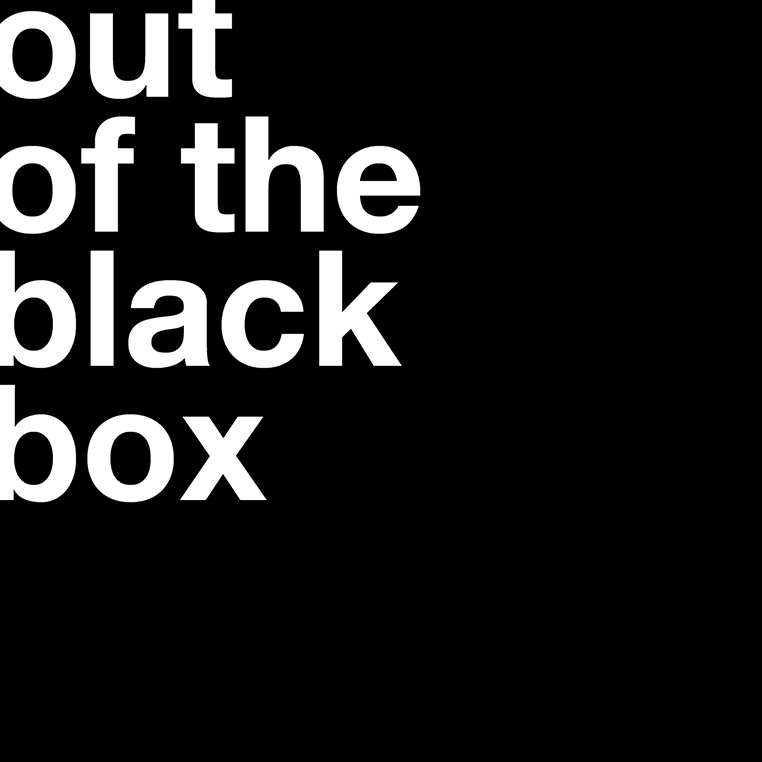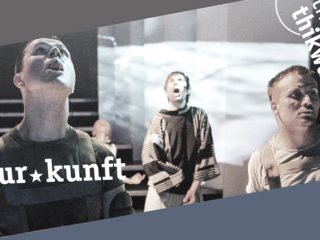
“Everyone needs help from everyone.”
Bertolt Brecht
Six companies, collectives and ensembles form the core network of German ‘refugee theatre’ established by the Post-Heimat meeting in Munich. What follows is a brief overview of each company based on the presentations at the meeting.

THE BOAT PEOPLE PROJEKT
An independent company set up in Göttingen (North Germany) in 2009 to work with artists in exile, particularly people from war zones. They collectively look for topics, forms and narrative strategies to make intercultural theater tangible for a diversified audience and introduce German audiences to new perspectives. A recent project mixed classical German, Arabic and African music and the current aesthetic project, Die Probe sees a Syrian creative team, as well as cast, addressing a German cultural perspective. The company also works collaboratively with other groups – one such project Nora, directed by Wessam Talhouq, told the story of a Syrian woman’s dilemma, whether to stay or go – “every time I made the decision to leave, I remembered a hundred reasons to stay. And when I decided to stay, I remembered a hundred reasons to leave.”
The company also aims to “inform and support artists from other countries to develop ideas in culture and art for a diverse society” in a directly practical way, and the Artistic Director, Nina de Chevallerie, has been advising on Die Fibel (the Primer), a set of booklets in English published by Landesverband Freier Theater Niedersachsen which offer practical advice for producing a show in Germany.
Presented by Nina de Chevallerie.
www.boatpeopleprojekt.de
HAJUSOM
Back in 1999, three refugee teenagers living in Hamburg formed Hajusom, the name being a compound of the first syllables of their names. The aim is to empower young people to find their own creative expression and to connect with classic theatre audiences. An independent company without revenue funding, Hajusom works in close partnership with Hamburg’s Kampnagel as well as connecting with other building-based venues. Over the past 20 years, they’ve developed a large ensemble of mostly 12-25 year olds, connecting with young refugees – through dance, performance, poetry, cooking, whatever they want to do – to create work and also help members to professionalise. Following the principle of “each one teach one” they aim to create a sustainable, cross-generational continuity. Shows are devised and are programmed on a post-migrant basis, so recently they’ve looked at themes like love, climate change, post-humanism. The most recent piece is Silmandé, a transnational eco-art project conjuring up a posthuman future in conjunction with an anti-desertification project in Burkina Faso. The protagonist is the planet. As posthuman beings look back on its history, devastation prevails, but somewhere in amongst it all, so does hope.
Presented by Lea Connert.
www.hajusom.de/english/hajusom

EXIL ENSEMBLE / MAXIM GORKI THEATER
Part of Berlin’s Maxim Gorki Theater, the Exil Ensemble was formed in 2016 with an ensemble of 7 performers from Syria, Afghanistan and Palestine. It runs parallel with the main ensemble and the main idea is “to help artists at risk to work here in safety in a professional sphere.” They’ve been working across a range of projects, moving away from testimonial theatre as they go, the latest being Elizaveta Bam, an absurdist piece based on the work of Russian writer, Daniil Kharms. The Gorki arguably leads the field in political and refugee theatre in Berlin, indeed the person who coined the phrase ‘post-migrant’ was its Director, Shermin Langhoff. She also played a key role in galvanising the German theatre response to the arrival of the refugees in 2015. The Gorki is keenly aware that its position as a Staatstheater (state-funded city theatre) brings responsibility and they are keen to support companies/artists who are not so well-known or financed.
Presented by Christopher-Fares Köhler.
www.gorki.de/en/exile-ensemble
RUHRORTER
Another independent, this company grew out of a project with Theater an der Ruhr in Mülheim. In 2012, its director, Adem Köstereli, concerned about exclusion, wanted to work with young refugees exploring themes like family, loss and love rather than issues of identity. Drawing inspiration from Pina Bausch, they used rhythms and moods rather than language. The company is based in an old warehouse that housed Yugoslavian refugees in the 1980s, traces of whom still remain. Wanting to recognise the continued existence of the mostly ignored post-industrial towns along the River Ruhr, (orter means ‘place’), the company focuses on place and the idea of the associated archeology of memories, often adopting a ‘pop-up’ approach. The last project, Unwahrhaftigkeit (Categories of Untruthfulness), was an audio/performance installation which saw refugees working directly with the town council staff and politicians across 3 floors of the old Woolworths building. The current project, Inmitten der Dunkelheit Rief Ich Dich (In the Midst of Darkness I Called You) uses the Orpheus myth in “the search for an artistic expression for experiences of loss and sadness, not just in mere retrospect, but rather designing a new form of forward-thinking memory…revolving around the act of speech itself.”
Presented by Jonas Tinius.
www.ruhrorter.com

COLLECTIVE MA’LOUBA
Established in 2017, this Syrian, Arabic-speaking, theatre collective is run by exiles for exiles. Named after a classic Arabic dish that is served upside down, the company questions the political and social condition of the Arab world in the context of recent upheavals and aims to penetrate taboos of Syrian society. Currently in residence at Mulheim’s Theater an der Ruhr and following the Roberto Ciulli model, they aim to move beyond nationalities altogether. They’ve been working in Germany and further afield – they’re off to Tunis later this year. Shows include Ya Kebir based on actress, Amal Omran’s diary addressing issues of patriarchy in Arabic countries. The latest show is Days in the Sun by Syrian playwright, Mudar Alhaggi about the possibilities of personal emancipation for a young woman in joining the Syrian revolution. The Collective also stages free cultural evenings of Arabic music and readings on an occasional basis, Moshabak Nights.
Presented by Immanuel Bartz.
http://www.collective-malouba.de/en/
OPEN BORDER ENSEMBLE / MÜNCHNER KAMMERSPIELE
In 2015 following the appointment of Matthias Lilienthal as Director, the Münchner Kammerspiele, staged its Open Border Congress and established itself as Germany’s first ‘Welcome Theatre’, running a Welcome Café, a youth club and an Arabic cinema club, Kino Azul. The next step was the Open Border Ensemble, established with the aim of enabling the continuation of professional life outside Syria for five actors in a similar way to the Exil Ensemble. To date, two semi-documentary pieces have been produced, both exploring the creative process of testimonial theatre across language barriers – Miunikh-Damaskus and What do They Want to Know? An interesting part of the process has been the development of a new creative role – that of ‘Cultural Mediator’ – in a bid to transcend cultural and aesthetic division.
Presented by Krystel Khoury & Anne Schulz.
https://www.muenchner-kammerspiele.de/en/open-border/open-border-ensemble

Photo credits
Homepage : Ya Kebir. Collective Ma’Louba. Photo by G. Bresadola
Main photo : Silmandé – Hajusom. Photo by Arnold Morascher
(Photos courtesy of the six companies)






Leave a Reply
You must be logged in to post a comment.